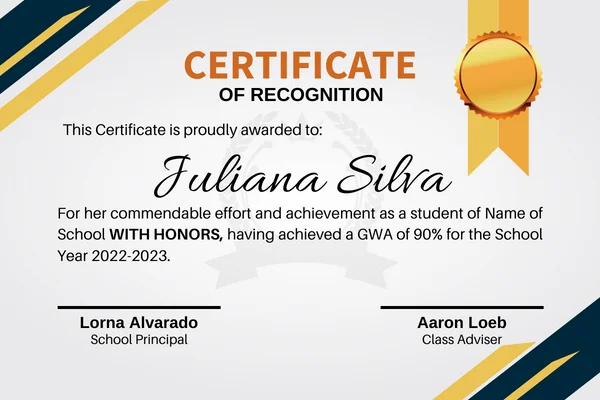If you want to become a certified barista. Then, earning coffee credentials can help you turn passion into a career and demonstrate your dedication to the craft. Follow my journey step-by-step as I master the skills, study hard, and pass exams on my way to barista glory. Read on for tips to excel at every stage!
Table of Contents
Step 1: Learn the Basics to Become a Certified Barista
Learn the Basics Before attempting to become a certified barista, get the core skills down through classes, online tutorials, books, and practice:
- Espresso Preparation – Understand pulling shots, dialing in, dosing, and tamping. The first skill a barista needs to master is espresso preparation. This includes knowing how to grind coffee beans, properly dose the grounds, and tamp them into the portafilter. These are essential steps to produce a quality espresso shot, which is the foundation of many coffee drinks.
- Milk frothing – Texture milk properly to silky macrofoam. Latte art is optional. Another essential skill for a barista is steaming and texturing milk. The ability to froth milk properly is crucial in creating latte art, which is a visual representation of the barista’s skill and expertise.
- Crafting drinks – Practice making espresso beverages like cappuccinos to recipe standards. Latte art is the ability to create beautiful designs on the surface of a latte or cappuccino. To create latte art, the barista must pour the steamed milk into the espresso shot in a specific way, which creates a pattern or design. This requires a steady hand and an eye for detail.
- Grinding/brewing – A barista must also deeply understand coffee brewing methods. This includes pour-over, French press, and AeroPress. Each method requires a different set of skills to achieve the optimal coffee flavor and strength.
- Customer service – Hone your hospitality skills through real cafe experience. A barista must have excellent customer service skills, as the coffee shop is often a place for social interaction and relaxation. A barista should be able to communicate effectively with customers, provide prompt service, and handle customer complaints and inquiries with professionalism.
- Hygiene: A barista must maintain a clean and hygienic workspace to ensure the safety of customers and coworkers. This includes regularly cleaning and sanitizing equipment, utensils, and surfaces.
- Coffee Knowledge: A barista must have a deep understanding of coffee origins, roasting techniques, and flavor profiles. Knowing about different types of coffee and brewing methods is essential to creating the perfect cup of coffee.
- Equipment Maintenance: A barista must know how to maintain and troubleshoot equipment, including espresso machines, grinders, and brewers. They must also know when it’s time to replace equipment and be able to make recommendations to management when necessary.
- Time Management: A barista must be able to manage their time effectively, as coffee shops are often busy and fast-paced. They must be able to prioritize tasks, multitask, and meet customer demands while maintaining quality and efficiency.
- Teamwork: A barista must be able to work well with others, including coworkers and management. They should be able to communicate effectively and collaborate with other staff members to ensure the smooth operation of the coffee shop.
Step 2: Choose a Certification Program
Popular barista-certifying organizations include as below to become a certified barista:
- Specialty Coffee Association (SCA) – Considered the gold standard in certifications. Offers introductory and advanced levels.
- International Coffee and Barista Academy (ICBA) – Get certified at the first SCA-authorized coffee academy in the Americas!
Research each organization’s credibility, exam details, and recognition to select the best program for your goals.
Step 3: Enroll in Preparatory Courses
Many certification programs don’t provide direct training, so enroll in barista teaching courses to build knowledge:
- Local roaster/cafe courses – Hands-on instruction is often the nearest option.
- Online courses – Convenient digital content from sites like Barista Institute.
These 2–5-day intensive courses review core skills through demonstrations, tastings, and hands-on practice with professional trainers. Expect homework studying coffee theory too. Budget $250-$1000 for quality in-person or virtual classes.
Step 4: Study Extensively for the Exam
Certification exams test both concrete and conceptual knowledge:
- Purchase study guides or flashcards to help memorize facts, stats, and coffee profiles.
- Know equipment specifics like temperatures, extraction times, and ratios.
- Grasp concepts like flavor characteristics, coffee harvesting, and roasting chemistry.
- Review sample exam questions and practice mock exams.
- Form study groups and quiz each other. Make it fun!
Expect to commit 1-2 months of consistent studying to deeply absorb the material before testing.
Step 5: Take and Pass the Exam
Exam day is finally here – time to demonstrate your expertise!
- Arrive early, triple check you have ID and any needed materials.
- Read instructions carefully, budget time for sections accordingly.
- Flag questions to come back to rather than get stuck.
- Use techniques like process of elimination for multiple choice.
- Trust your gut and don’t second guess on essays.
- Avoid fixating on any one problematic question.
With sufficient preparation, you’ve got this! Trust the knowledge instilled through rigorous studying.
Step 6: Add Certified Barista to Your Resume!
Once you pass and become officially certified:
- Add your new credential, certifying body, and year to your resume.
- Alert coffee shops you apply to that you are certified.
- Consider certificate framing and logo usage. Be proud!
- Maintain your certification with renewal courses as needed.
Bask in your sense of accomplishment! Let certification open new career doors in the exciting world of coffee.

Conclusion
To become a certified barista, you will need to complete a training program that covers all the skills. This typically includes a combination of classroom instruction and hands-on practice. You may also be required to pass a written and practical exam to demonstrate your proficiency.
In addition to these skills, a barista must also have a passion for coffee and a desire to continually learn and improve their craft. This includes keeping up with the latest trends and innovations in the coffee industry, experimenting with new brewing methods, and attending coffee events and workshops.
Overall, becoming a certified barista requires dedication, hard work, and a love of coffee. With the right training and practice, anyone can master the skills necessary to create the perfect cup of coffee and provide exceptional customer service.








